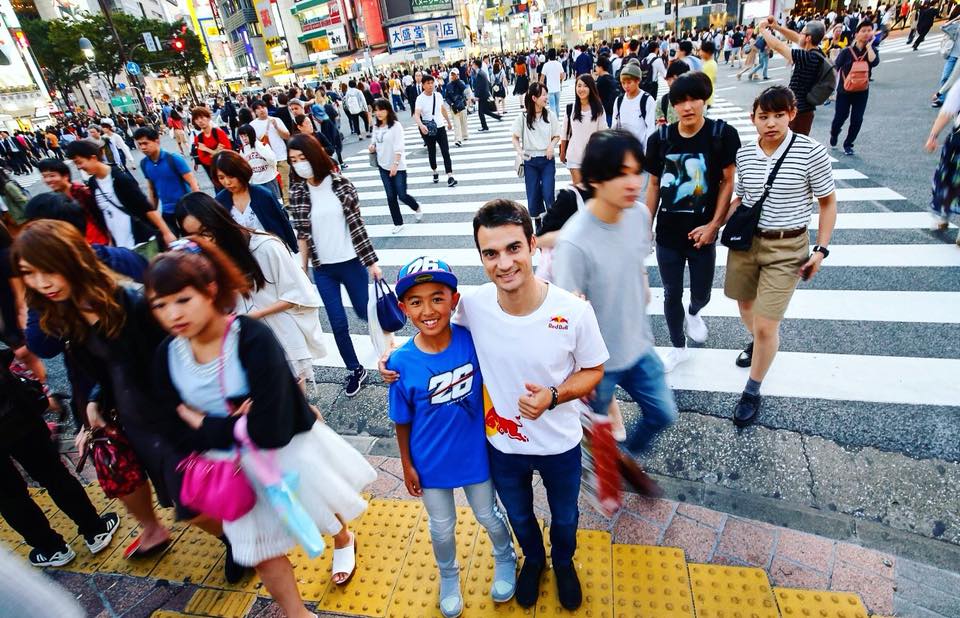If you’re not fully awake and alert, your reaction time is slower.
Hi everyone!
Right now, I’m actually on the transoceanic tour, which, as you know, means that I’m in a time zone that’s very different from the one at home. When you travel such long distances, you can suffer from jet lag, which is caused by differences in time zones and changes in our body’s circadian rhythms.
I’ve been competing in the World Championship for 16 years, which is whole lot of trips if you stop to think about it, but the effects of jet lag aren’t always the same. Sometimes it affects you more than others, so it’s important to be prepared. When we travel by plane, we arrive to the races ahead of time to prevent serious problems and ensure we’ve got enough time to fully recover.
My first experience with jet lag was intense because I wasn’t used to the effects and the time difference. For example, in the transoceanic tour, the worst is arriving in Motegi. But the more you travel, the more quickly your body gets used to it. For me, sometimes it’ll be three nights before I can finally sleep well. When that happens, I try to make myself fall sleep by lying in bed, maybe reading a book, or studying something I am interested in learning about.

No two people handle jet lag the same way. On my team, everyone has their own unique way of dealing with it. Some take supplements, others go to sleep as soon as they board the plane. Everyone is different and jet lag effects everyone differently, that’s for sure.
Here are some tips to overcome jet lag:
- Drink a lot of water during the flight because it’s easy to get dehydrated; this will help your body acclimate.
- Do physical exercise when jet lag makes you start to feel sleepy.
- It’s also very important to eat at the right time: meal times also affect your body clock.
- From the moment you board the plane, you should act like you’re in the time zone of your destination. Continue acting in accordance with the local time when you land.
- Sleep according to the local time. Even if you get to Japan at 9 a.m., when it’s night time in Europe, you’ve got to stay awake until it gets dark so your body can acclimate to the new time zone.
- As time goes on, your own personal experience will help you find out what works best for you.
In any case, you should know that jet lag is different depending on if you’re travelling east or west. For me it’s worse to travel to the transoceanic tour than to the Americas Grand Prix, for example.
I think travelling west is easier because it’s easier to stay awake until night time, and when night does roll around you’re tired and you can fall asleep. Travelling east is the opposite: you have to go to bed a lot earlier than you’re used to, more or less when it’s time for siesta (mid-afternoon). And since you usually only nap for about an hour during siesta time, you’ll probably wake up only two or three hours after you go to sleep.

It’s very important for me to use these tricks when I’m travelling to a competition because racing with jet lag is very uncomfortable! It actually affects the nervous system and can make you uneasy. If you’re not fully awake and alert, your reaction time is slower. Resting is essential for keeping your focus, but I definitely don’t recommend you go to extremes to get over jet lag. It’s something that takes time and patience, anything else is simply a waste of energy.
Dani Pedrosa


 Join Us
Join Us  Join Us
Join Us 